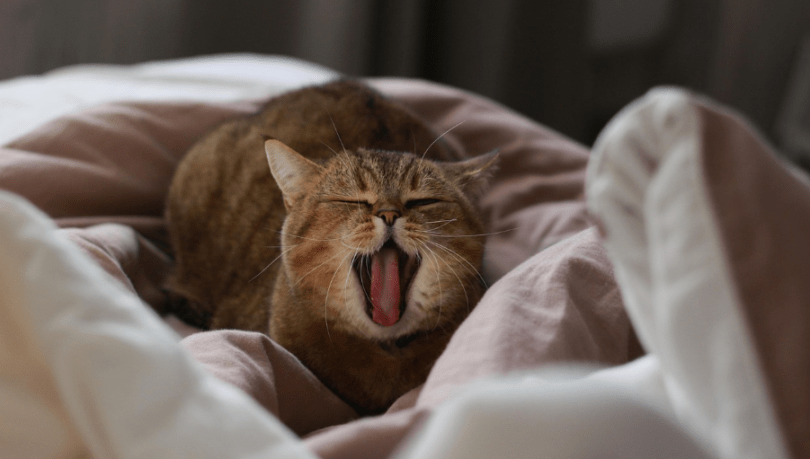Everyone yawns , just watching someone yawn or thinking about it can make us feel the need to do it. Yawning is a basic action of the body.
Lets understand what a yawn actually is.
According to the scientific definition, a yawn is an involuntary physical act in which the yawner opens the mouth and throat widely and takes a deep, long breath, then exhales the air in a shorter exhalation and the mouth closes again.
We do not choose when to yawn and it is very difficult, almost impossible, to stop a yawn.
Why does it happen? We still have not found complete scientific answers to these questions, but scientists have several interesting hypotheses.
Why Do We Yawn?
The truth is that no one really knows. Many scientists have spent years trying to answer this question and have come up with different ideas.
For example, about thirty years ago, it was thought that when the body detects a lack of oxygen or an excess of carbon, it makes us yawn to bring more oxygen into the lungs and get rid of the excess carbon dioxide.
But this idea was disproved when people were given air with varying concentrations of oxygen and carbon dioxide, and it did not affect how much they yawned. So yawning is not related to our breathing.
A newer and more accepted theory offers another explanation:
yawning is the body’s way to cool the brain. According to this view, the deep stretching of the facial and jaw muscles and the quick closing of the mouth at the end of the yawn increase blood flow to the face.
The cool air that enters the mouth during the yawn cools this blood, which then flows toward the brain and cools it as well.
This theory actually has evidence. In one experiment, researchers showed that people who had a heat pack on their head yawned more than other people, while those who had a cold pack yawned less.
In other experiments, scientists measured the brain of rats temperature and saw that before yawning it was higher, and after yawning it was lower.
But it does not explain the contagious effect of yawning.
Social Yawning A person who yawns can “infect” others and make them yawn too.
Our brain is built for that: it has special nerve cells called “mirror neurons.” that “imitating” cells that allow us to learn actions by watching someone else perform them.
Studies have shown that these cells are active in the brain even when we watch someone yawn. The contagious yawn is also called “social yawning,” and brain scientists attribute it to our ability to empathize with others. It turns out that this theory also works when looking at yawning between different species of animals. One study showed that dogs tend to yawn in response to their owner’s yawn more than they do when seeing a stranger yawn.
Try to remember, in what situations do you start yawning In all of them you need something to stimulate the brain’s activity.
According to this theory, the purpose of yawning is to awaken the brain, to give it a kind of “shake” so it can function better again.
The movement of the facial and neck muscles during yawning activates special sensors in the neck area, which send stimulating signals to the brain and cause an effect similar to the awakening effect of drinking coffee.
This idea can also explain the logic behind contagious yawning. After all, such a mechanism, which can increase our alertness and also affect those close to us, could have served humans since ancient times in many situations. For example, for early humans it may have helped all members of a tribe to escape from an attacking animal, and today it can help all the students in a classroom stay focused during a very boring lesson. It is important to remember that these are only theories – some have rather convincing evidence, and some less so.
The fact that yawning is a common everyday phenomenon that has survived millions of years of evolution and still exists among many animals suggests that yawning probably has an important role, though we still cannot say for sure what it is. It remains a mystery waiting to be solved by the scientists of the future.
The Mystery of Yawning
Advertisement
Advertisement

